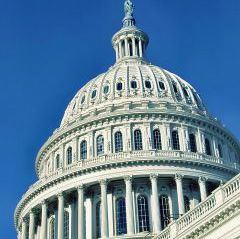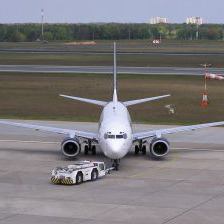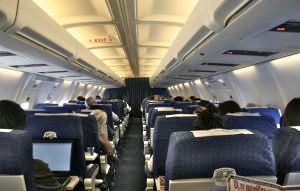 As Congress debates the FAA Reauthorization bill that will effectively guide air transportation policy for the next two years, interested parties from the airlines and airports to pilots’ unions and consumer groups are jockeying for their preferred outcomes.
As Congress debates the FAA Reauthorization bill that will effectively guide air transportation policy for the next two years, interested parties from the airlines and airports to pilots’ unions and consumer groups are jockeying for their preferred outcomes.
The bill, which passed a vote in the Senate Commerce, Science and Transportation Committee last week, includes a number of provisions that should impact areas from the rights of delayed passengers to air traffic control systems.
Consumer groups, especially FlyerRights.org, led by delayed-passenger-turned-activist Kate Hanni, cheered the inclusion of the Boxer-Snowe Amendment to the bill, which provides passengers with some basic rights, including the right to de-plane during delays in excess of three hours.
Read about perhaps the most famous incident of extreme delay in The Jet Blues.
The Air Transport Association (ATA), which represents airlines, was less than enthusiastic about this turn of events, with spokesman David Castelveter warning of “unintended consequences” and decreased efficiency.
 Other travel industry lobby groups such as the National Business Travel Association (NBTA), the American Society of Travel Agents (ASTA) and the Business Travel Coalition (BTC) took a more neutral position, or even supported the bill. These groups, which are typically pro-airline, essentially boiled their argument down to the idea that if the airlines aren’t properly handling these incidents of extreme delay, then a clear standard of how to deal with them should be set.
Other travel industry lobby groups such as the National Business Travel Association (NBTA), the American Society of Travel Agents (ASTA) and the Business Travel Coalition (BTC) took a more neutral position, or even supported the bill. These groups, which are typically pro-airline, essentially boiled their argument down to the idea that if the airlines aren’t properly handling these incidents of extreme delay, then a clear standard of how to deal with them should be set.
Recent statistics from the airlines indicate that well over 500 flights (577) suffered delays of three or more hours in the period from October 2008 to May 2009, a rate that translates into more than one in every 10,000 flights.
Why is this legislation necessary? Check out Feds Pass Hazy Guidelines for Air Travelers’ Rights.
Less contentious were the provisions providing funding for a “next generation” air traffic control system, which will utilize satellites to help guide planes more efficiently.
 The US Travel Association, which represents the travel industry generally, was pleased, with President Roger Dow saying “A modernized, satellite-based air traffic control system–similar to what many Americans have in their automobiles–is the most effective way to alleviate flight delays.”
The US Travel Association, which represents the travel industry generally, was pleased, with President Roger Dow saying “A modernized, satellite-based air traffic control system–similar to what many Americans have in their automobiles–is the most effective way to alleviate flight delays.”
The bill’s next hurdle is the Senate Finance Committee, which will have to figure out how to pay for it all. Among the options under consideration are increases on jet fuel taxes as well as increases in the airport passenger facility charges and “user fees.”
Sen. Jay Rockefeller (D-WV) has previously attempted to add a $25-per-flight user fee on passengers to pay for the air traffic control upgrades and the operation of the FAA. This provision was opposed vociferously by many industry groups, including the NBTA and ATA, which argued it would hit general aviation and smaller planes, shifting the cost burden to them.
These fees were not included in the final bill. Sen. Rockefeller was still supportive of such a plan, but couldn’t find enough backing in the Senate to overcome the industry opposition.
Assuming the bill gets through the Finance Committee approval process, it must then pass the full Senate vote before it can be sent to another committee, where it will be reconciled with the version passed by the House of Representatives.
By Matthew Calcara for PeterGreenberg.com.
Related links: Aviation Week, US Travel Assoc., USA Today, PR Newswire
Check out Peter Greenberg’s Greatest Hits of Airline Mishaps:












